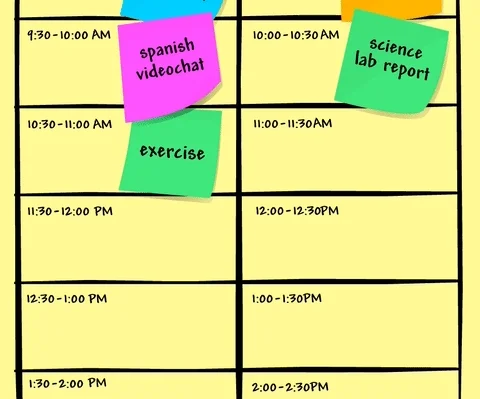
This logo isn't an ad or affiliate link. It's an organization that shares in our mission, and empowered the authors to share their insights in Byte form.
Rumie vets Bytes for compliance with our
Standards.
The organization is responsible for the completeness and reliability of the content.
Learn more
about how Rumie works with partners.
Imagine a world where your personal AI tutor knows exactly what you need to learn, how to learn it, and never gets tired of explaining concepts.
 Photo by Andy Kelly on Unsplash
Photo by Andy Kelly on UnsplashSounds like a dream, right? But is it all sunshine and rainbows?
Artificial intelligence (AI) is rapidly changing the landscape of education. From smart learning apps to virtual reality classrooms, AI is here to stay. But like any powerful tool, AI for education comes with its own set of opportunities and challenges.
The Pros of AI for Students

2. Inclusive Learning
Features like text-to-speech and automatic captioning can help cater to diverse needs, ensuring all students have equal chances to succeed.
 Photo by Monica Flores on Unsplash
Photo by Monica Flores on Unsplash3. Enhanced Engagement
AI-powered games, real-time feedback, and virtual reality make learning enjoyable, boosting motivation and participation.
The Cons of AI for Students
1. Dependency on Technology
Students may depend too much on AI for answers and miss out on solving problems themselves. This can reduce their ability to think critically and creatively.

2. Misinformation
AI systems can sometimes provide incorrect or biased information.
Students using AI for research or homework might unknowingly accept and spread inaccuracies, harming their education and understanding of subjects.

3. Loss of Personal Connection
AI can't replace the mentorship, encouragement, and collaborative problem-solving that interacting with human teachers brings.

AI Tutoring App: Yay or Nay?

David is considering using an AI-based tutoring app to help him study for his math exam. He is considering the pros and cons before downloading it.
What could be an advantage and a disadvantage of using the app?
A.
It can personalize his learning.
It can't keep him engaged.
B.
It can keep him engaged.
It can't provide mentorship.
C.
It can keep him engaged.
He'll be limited to where and when he can access learning.
D.
It can provide a personal connection.
It can't keep him engaged.
Quiz
Which of the options above best decribes the pros and cons of an AI-based tutoring app?
The potential benefits of the AI-based app include increased engagement but it cannot mentor him and provide a personal connection the way a human can.
The Pros of AI for Educators
1. Efficiency and Time-Saving
It can automate tasks like scheduling, lesson planning, and grading papers, freeing up time for teachers to focus on their students.
 Photo by Alexandr Podvalny on Unsplash
Photo by Alexandr Podvalny on Unsplash2. Empowerment and Impact
AI can also give teachers data-driven insights that enable them to track student progress, identify learning gaps, and fill in those gaps.
 Photo by Parabol | The Agile Meeting Toolbox on Unsplash
Photo by Parabol | The Agile Meeting Toolbox on UnsplashThe Cons of AI for Educators
1. Fears of Job Replacement
Educators worry that AI could automate many teaching tasks, potentially leading to job losses, and causing uncertainty about their future.

2. Potential for Cheating
The rise of generative AI chatbots raises concerns about academic integrity.
Students might use generative AI to complete assignments or even take exams, making it difficult for teachers to ensure genuine learning and assess true understanding.

3. High Implementation Costs
Not all educational institutions can afford the latest AI tech, potentially widening the gap between schools.

Ethical AI in Education
To use AI for education responsibly when teaching or learning, consider these principles:

Training
Educators must be trained to integrate AI effectively, so it complements rather than replaces human instruction.
What Should Jane Do?
 Photo by LinkedIn Sales Solutions on Unsplash
Photo by LinkedIn Sales Solutions on UnsplashJane is a high school principal considering implementing an AI system at her school. She wants to ensure the system is used ethically.
Which of the following practices would best support this goal?
A. Limit AI use to administrative tasks only.
B. Share all student data publicly for transparency.
C. Require students to declare AI assistance in their work.
D. Allow AI to make all academic decisions.
Quiz
Which of the above policies should Jane implement?
Requiring students to declare that use of AI is a practice that promotes transparency. Sharing student data would compromise their privacy so it's best to avoid doing so. AI can be useful for administrative as well as academic activities but it must be checked and overseen by human educators.
Take Action
 Photo by Solen Feyissa on Unsplash
Photo by Solen Feyissa on UnsplashLike any other technology, the outcome of AI for education depends on how you use it.
This Byte has been authored by
Kay Terera
Professional Development Trainer & Art Educator
MPhil



